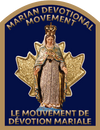Mary and the Eucharist
Mary and the Eucharist
Mary in the Catechism
The Catechism of the Catholic Church highlights Mary's unique role in the mystery of Christ and the Church. Mary is acknowledged as the Mother of God and the Mother of the Church. Her role is inseparable from her union with Christ and flows directly from it. This union is evident from Christ's virginal conception to His death on the cross. At the crucifixion, Mary stood by Jesus, enduring His suffering and joining herself with His sacrifice. This act of union is a profound example of her participation in the Eucharistic mystery, where the sacrifice of Christ is made present. 1.
After Jesus' Ascension, Mary continued to support the early Church through her prayers, imploring the gift of the Holy Spirit. Her Assumption into heaven is seen as a singular participation in her Son's Resurrection and an anticipation of the resurrection of other Christians. 2.
The Eucharist in the Catechism
The Eucharist is described as the "source and summit of the Christian life" in the Catechism. It is the sacrament that contains the whole spiritual good of the Church, namely Christ Himself. The Eucharist is the sum and summary of our faith, confirming our way of thinking and living. 3.
It is celebrated as the Lord's Supper, the Breaking of Bread, and the Eucharistic assembly, signifying the unity of the faithful with Christ and with one another. 4.
The Eucharist is also a memorial of Christ's Passover, fulfilling the Jewish Passover and anticipating the final Passover of the Church in the glory of the kingdom. 5. In the Eucharist, the Church is united with Mary at the foot of the cross, participating in the offering and intercession of Christ. 6.
Biblical Foundations The Bible provides several key passages that illuminate the connection between Mary and the Eucharist. At the Annunciation, Mary consented to God's plan, allowing the Word to become flesh within her (Luke 1:38). This moment prefigures the Eucharist, where the Word becomes flesh under the appearances of bread and wine. At the Wedding at Cana, Mary interceded on behalf of the hosts, leading to Jesus' first miracle (John 2:1-11). This act of intercession mirrors her role in the Eucharist, where she continues to intercede for the faithful. The Last Supper narratives in the Gospels (Matthew 26:26-28, Mark 14:22-24, Luke 22:19-20) and Jesus' discourse on the Bread of Life (John 6:35-58) are foundational texts for understanding the Eucharist. Jesus' words, "This is my body" and "This is my blood," establish the Eucharist as the sacrament of His real presence and the new covenant. 7.
Quotes from the Saints
The saints have provided profound insights into the relationship between Mary and the Eucharist. St. John Damascene highlights the role of the Holy Spirit in both the Incarnation and the Eucharist: "The Holy Spirit comes upon them and accomplishes what surpasses every word and thought... just as it was of the Holy Virgin and by the Holy Spirit that the Lord, through and in himself, took flesh". 8.
St. Maximilian Kolbe expressed a deep devotion to the Eucharist, stating, "If angels could be jealous of men, they would be so for one reason: Holy Communion". 9. This quote underscores the unique privilege of receiving Christ in the Eucharist, a privilege that Mary experienced in a singular way as the Mother of God.
St. Teresa of Calcutta emphasized the transformative power of the Eucharist: "Jesus has made Himself the Bread of Life to give us life. Night and day, He is there. If you really want to grow in love, come back to the Eucharist, come back to that Adoration". 10. Her words invite the faithful to deepen their relationship with Christ through the Eucharist, following Mary's example of total devotion.


